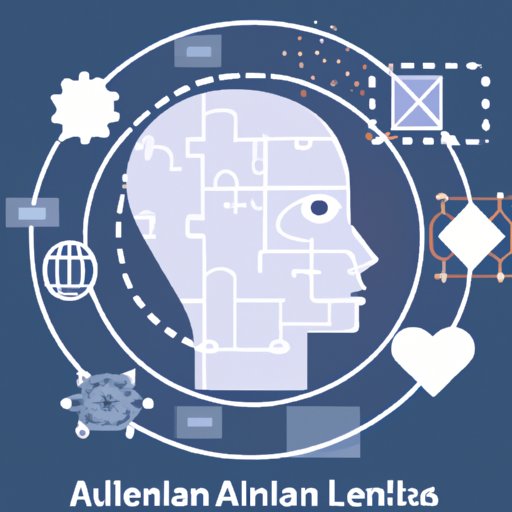Introduction
Artificial intelligence (AI) is the ability of a computer system to think, learn, and act in a way that mimics human intelligence. AI has become increasingly popular in recent years as technology advances and its applications become more widespread. In this article, we will explore what we can learn from AI and its potential implications for the future.
Education and Training Implications
The use of AI in educational systems has the potential to revolutionize the way we learn. AI can enable personalized learning experiences, making it easier for students to access the information they need when they need it. AI can also provide feedback and analysis on student performance, allowing teachers to tailor their teaching approaches accordingly. Additionally, AI can help automate administrative tasks such as grading, freeing up teachers to spend more time on instruction.
AI can also have an impact on professional training and development. AI-based tools can be used to identify skill gaps and suggest appropriate learning paths. This can help organizations better identify areas for improvement and develop strategies to address them. AI can also be used to create virtual simulations for training purposes, allowing employees to hone their skills in a safe and controlled environment.
Ethical Implications
The use of AI raises important ethical considerations. AI algorithms are only as good as the data they are trained on, and if the data is biased or incomplete, it can lead to inaccurate results. Additionally, AI can potentially be used to violate people’s privacy and autonomy, leading to concerns about how data is collected and used. It is important to ensure that ethical considerations are taken into account when developing AI systems.
Job Roles and Skills
The use of AI has the potential to significantly alter the job market. AI can automate certain tasks, freeing up workers to focus on higher-value activities. This could lead to the emergence of new job roles and the need for new skills. On the other hand, AI could lead to job losses as certain roles become obsolete. It is important to recognize the potential implications of AI on job roles and skills and to prepare for the potential changes.
Decision-Making
AI has the potential to improve decision-making in many areas. AI algorithms can analyze large amounts of data quickly and accurately, helping to identify patterns and trends that may not be immediately apparent. This can be useful in a variety of fields, including finance, healthcare, and cybersecurity. Additionally, AI can be used to detect fraud and make predictions about future events.
Healthcare Applications
AI has the potential to revolutionize healthcare by improving diagnosis, treatment, and patient care. AI algorithms can process vast amounts of medical data to identify trends and correlations that can be used to inform treatment decisions. Additionally, AI can be used to automate administrative tasks such as scheduling and billing, freeing up healthcare professionals to focus on patient care. However, it is important to consider the potential implications of AI on patient privacy and autonomy.
Conclusion
In conclusion, AI has the potential to transform the way we learn, work, and make decisions. AI can be used to improve education and training, automate tasks, and improve decision-making accuracy. Additionally, AI has the potential to revolutionize healthcare by improving diagnosis, treatment, and patient care. It is important to consider the ethical implications of AI and to prepare for the potential changes to job roles and skills caused by the emergence of AI.
(Note: Is this article not meeting your expectations? Do you have knowledge or insights to share? Unlock new opportunities and expand your reach by joining our authors team. Click Registration to join us and share your expertise with our readers.)
